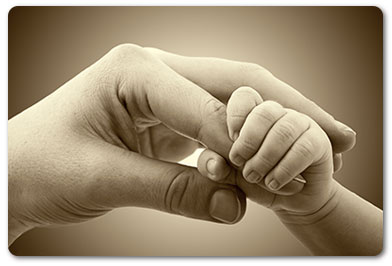Over the last year, numerous high profile cases about the medical treatment of terminally ill children have made their way into the newspaper headlines. Charlie Gard, Isaiah Haastrup and Alfie Evans have been some of the more high profile cases, each as tragic a set of circumstances as the last.
 The circumstances of these sad cases need little introduction, but suffice to say that each centred around a child suffering from degenerative neurological conditions. Such destructive neurological conditions are rare, and as such the medical community’s ability to treat or cure the conditions is at an extremely early stage. Carlie Gard was indeed only the 16th person in the world to actually be diagnosed with his condition, the rest so rare and under-researched that they do not even have names at this point.
The circumstances of these sad cases need little introduction, but suffice to say that each centred around a child suffering from degenerative neurological conditions. Such destructive neurological conditions are rare, and as such the medical community’s ability to treat or cure the conditions is at an extremely early stage. Carlie Gard was indeed only the 16th person in the world to actually be diagnosed with his condition, the rest so rare and under-researched that they do not even have names at this point.
The doctors’ in each case had come to the conclusion that it was no longer in each child’s best interests for life sustaining treatment to be provided due to the fact that no cure or treatment to improve the condition was possible. In each case the parent’s disagreed, arguing that their lives should be extended as far as medically possible. Each set of parents wanted to continue to provide treatment, against the medical advice. As such, each hospital sought permission from the court to withdraw life sustaining treatment against the parent’s wishes and move the children to palliative care only.
What happens when parents and doctors disagree?
These cases have raised painful questions about what happens when parents and doctors disagree.
Note: Each of these high profile cases have so far happened in England, and so the English courts have been involved in making those decisions. We will reference Scottish law, and what would happen if a case such as this was raised in Scotland.
So what exactly does the law say about situations like these?
When it comes to medical treatment for babies and very young children, those who have parental rights and responsibilities will normally make medical decisions on the child’s behalf. This comes from a general assumption that parents have their child’s best interests at heart and so are best placed to make those decisions.
However, parental rights and responsibilities only go so far. Sometimes, the parent’s wishes can conflict with what Doctor’s believe to be in the child’s best interests. For example, when parents who are Jehovas Witnesses’ will not give consent for their child to be treated with blood transfusions.
When there is a disagreement, the law says that the court will make an order according to what is in the child’s best interests. This means that decisions have to be made purely from the child’s perspective, and not what may be best for his or her parents or doctors, or any other external influence. Sometimes this will involve appointing a guardian to act on behalf of the child during proceedings or a curator ad litem to independently determine what is best for them.
The court must use its discretion to decide what is in the child’s best interests.
Once such cases reach the court, the court must use its discretion to decide what is in the child’s best interests. They will do so by weighing up the arguments from both sides, including often a detailed review of the medical records and evidence in each case. The considerations that the court will take into account were laid out in the case of Wyatt v Portsmouth NHS Trust, in which it was said that: “the judge must look at the question from the assumed point of view of the child. There is a strong presumption in favour of a course of action which will prolong life, but that presumption is not irrebuttable. The term “best interests” encompasses medical, emotional, and all other welfare issues.”
If you are interested in reading the judgements, they will each be linked below and make for interesting reading, particularly due to the sympathetic and truly understanding language used by the judges in each case.
All of these cases involved a clear application and validation of well established legal principles to determine if medical treatment was in the child’s best interests, and each court took into account all of the factors that one would expect – medical advice, the child’s current and potential future condition, the wishes of the parents, and the possibility of experimental or novel medical treatment where that was on offer. In all of the circumstances, the decisions are actually legally unexceptional.
Despite that, and although the law itself is clear, it doesn’t make it any easier for anyone involved to approach these decisions. It is truly impossible not to be moved by the pain of these parents who only want to do what they think is right for their child.
If you find yourself facing similar circumstances to the families involved in these sad cases, you should consult with a family law solicitor as soon as possible.
____________________
Links to original judgements:






